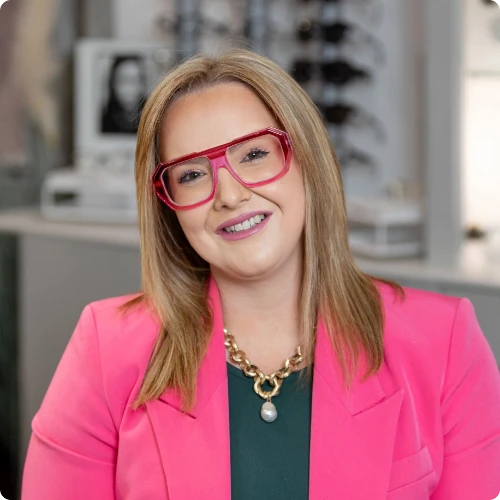Remember, UV Rays can cause serious eye conditions over time, such as cataracts, or macular degeneration! Not all sunglasses are created equally, it’s important that your eyes get the protection they need to block or absorb 99 to 100% of UV rays. On the beach, wearing a hat to shield your eyes from sun exposure is also a good idea. For anyone going skiing, snowboarding or even walking at high altitude, it’s essential to wear goggles or good quality UV400 rated sunglasses. On the mountains the sun’s harmful ultraviolet rays are easily underestimated, with a high risk of sunburn and ultimately skin cancer. Also – for safety when skiing pick acetate frames over metal ones, ideally choose frames with moulded nose pads that curve round your face providing a wider field of view and better protection from wind and glare.
Which lenses?
Whilst polarised lenses will help reduce glare reflected off the snow, some people find that they can make it difficult to distinguish ice from snow, mirror lenses are another option if you don’t like polarised. Mirror coating a lens, cuts the amount of light reaching your eyes and can reduce the dazzle of snow while still allowing you to see the reflected glare off icy patches. Mirror coatings are available in a graduated tint, cutting light levels where you need it most. Photochromic lenses get darker in bright sunshine. They work most effectively at cold temperatures and can save you having to swap eyewear depending on the conditions.
What is the best colour lens for the beach or ski slopes?
Different colour lenses will help with different conditions. Grey is great for all weather use; it blocks glare without changing your colour perception. Brown, Amber, and Rose are good to enhance contrast against a white background, so you can see shadows, ridges, and bumps. Choose brown for bright sunshine, and amber or rose for lower light levels. Yellow is great for low light and overcast days; it filters out blue light to enhance your perception of shadows. Better contrast and perception of better visual acuity. Some eyewear comes with interchangeable lenses which can help with varied weather conditions.
Did you know that your eyes can get sunburnt the same way your skin can?
The next time you get ready to head to the beach or ski slopes without protective eye gear, take a moment to remember that eyes can get sunburnt the same way skin can. Severely sunburnt eyes are caused by overexposure to UV (ultraviolet) rays, like those emitted by the sun. This condition is known as photokeratitis. Photokeratitis, or ultraviolet keratitis, is an inflammation of the cornea, which is the clear covering of the front of the eye. Protecting your eyes from UV rays is the only way to avoid getting them sunburnt. Photokeratitis usually resolves on its own within one to two days. Over time though, too much sun exposure can cause specific types of eye diseases to occur. These include cataracts, age related macular degeneration and even eyelid cancer. Pop into CG Optical if you have any of the following symptoms:
- seeing halos
- blurred, fuzzy, dim, or distorted vision.
- shadowy areas in the middle field of vision
- sensitivity to glare or light
- problems with night vision
The bottom line is It’s important to protect your eyes from the sun, and to take special care when you’re in high altitudes where air is thin, and UV rays are strong. We have over 30 different tints so you can get the right lenses for you and the activities you do.
Source:
https://www.healthline.com/health/eye-health/sunburned-eyes#when-to-see-a-doctorhttps://www.abdo.org.uk/for-the-public/https://www.abdo.org.uk/eyecarefaq/winter-sports-eyewear/







